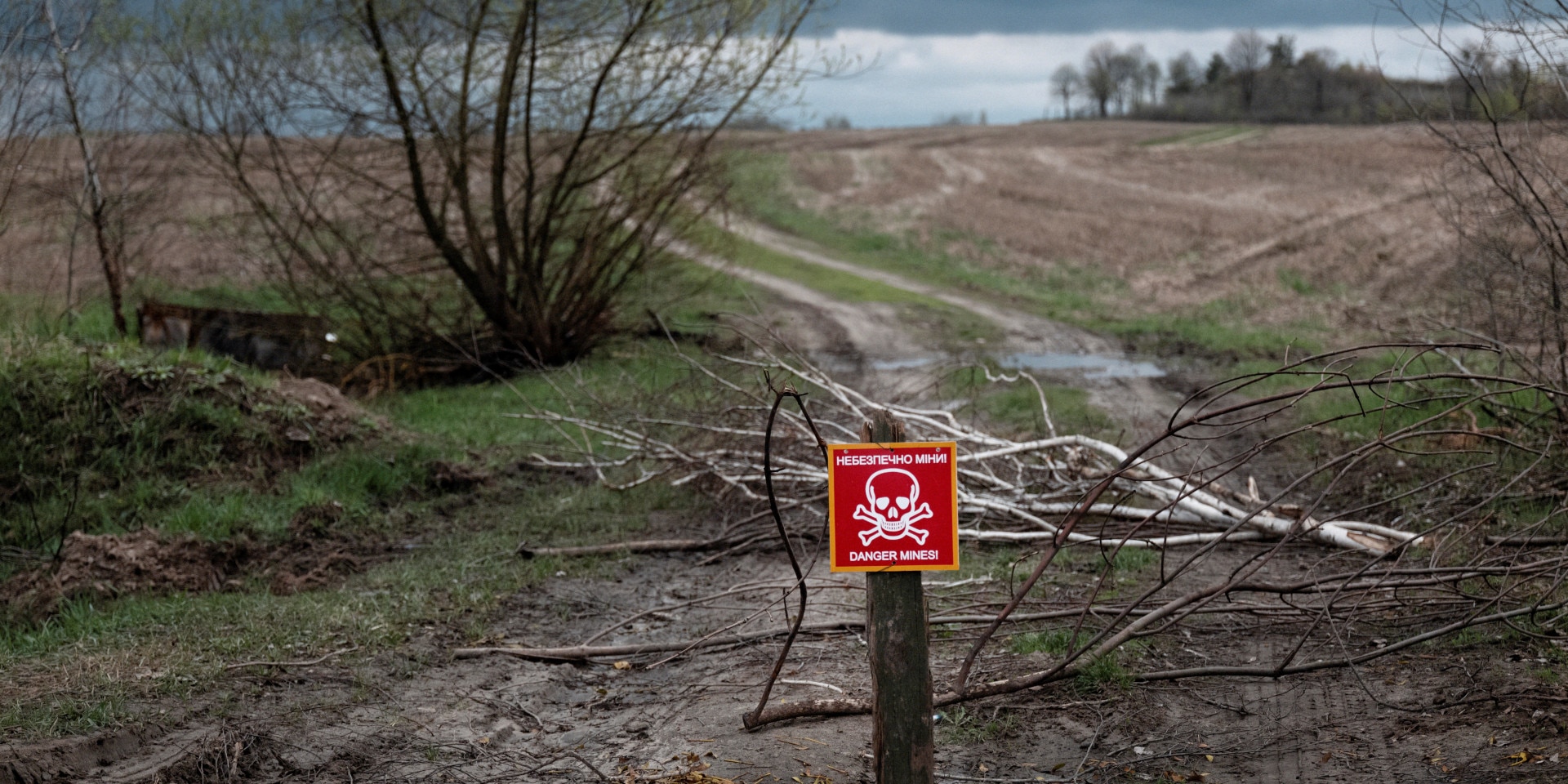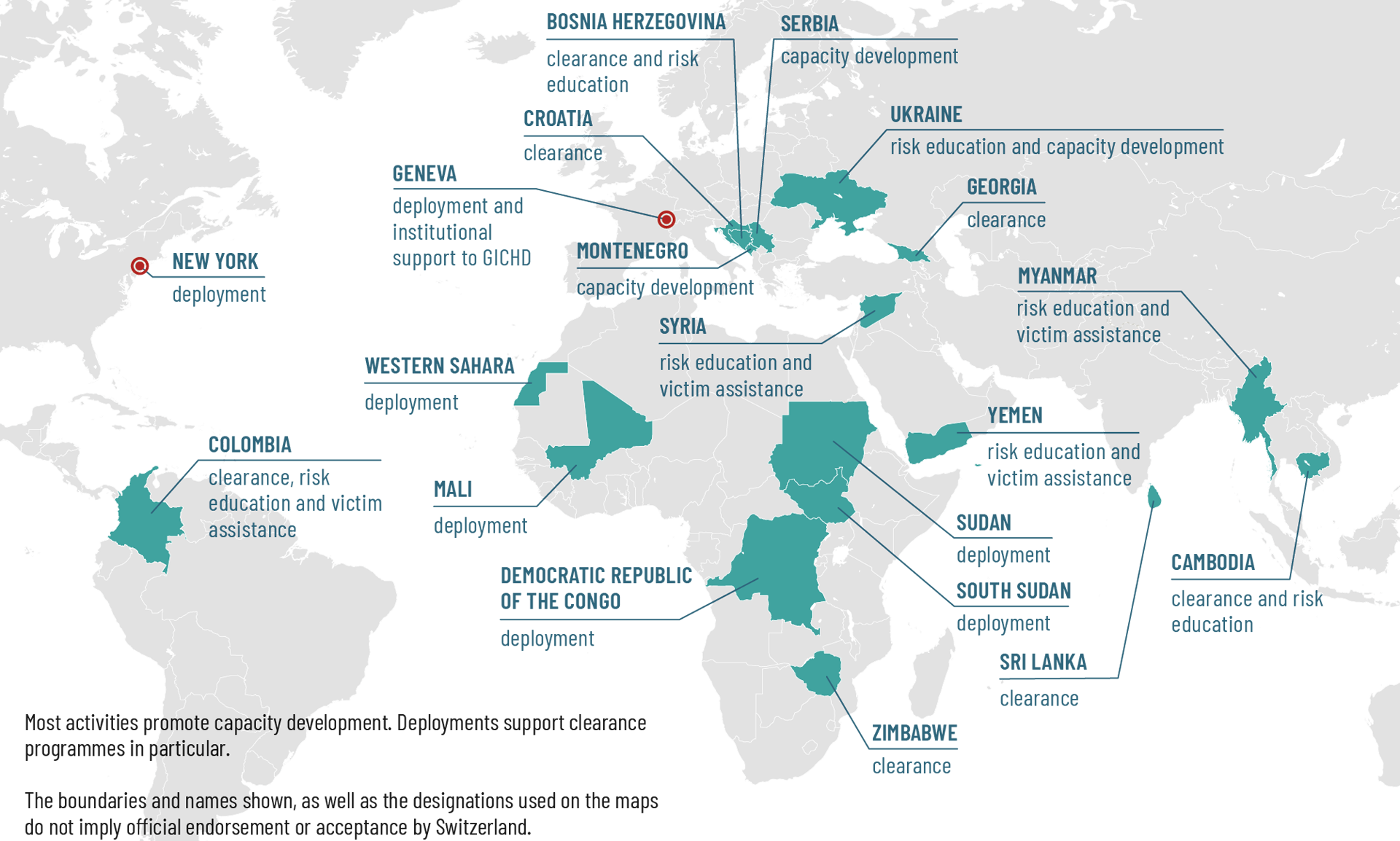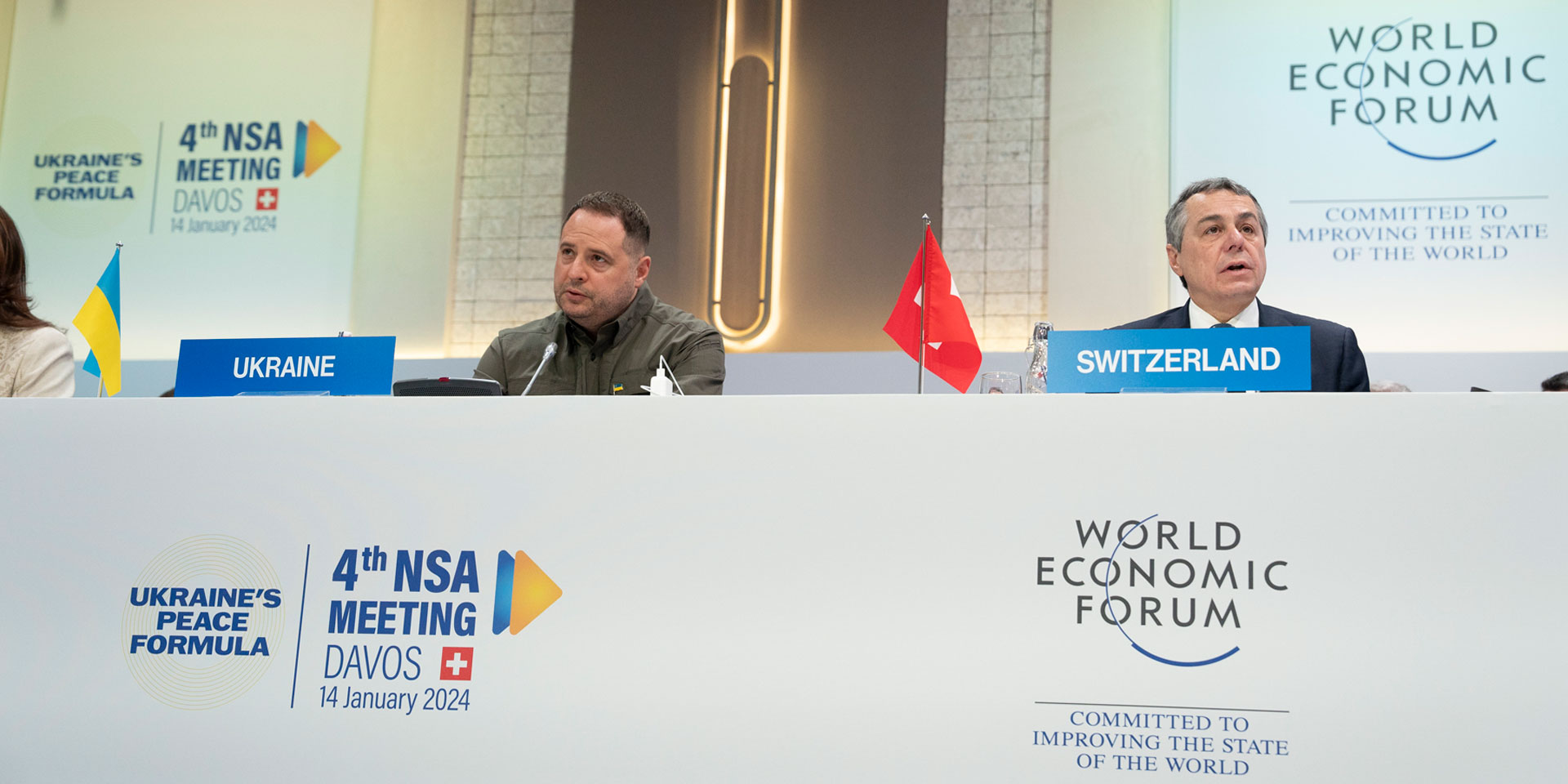"Mine clearance creates spaces for reconciliation"
Humanicemos is a demining organisation that emerged from the peace agreement between the Colombian government and the FARC rebels. "For life, reconciliation and reconstruction" is the motto of the former fighters, who are supported by Switzerland.
Even years after the peace agreement, Colombia remains the country most affected by mines on the South American continent. Tens of thousands of unexploded mines continue to threaten the lives of the population: more than 11,000 people have already fallen victim to them. Humanicemos – a civilian demining organisation with around one hundred employees – has set itself the task of detecting and neutralising these insidious explosive devices.
One of them is Omaira Baron Bahamon, a former FARC-EP guerrilla fighter who chose to lay down her arms and commit herself to reconciliation and peace. So far, Humanicemos has cleared an area of around 77,000 square metres in the former conflict zone of Caquetá, defusing over 40 explosive devices and unexploded ordnance. With Switzerland's support, Humanicemos has made the lives of 11,000 people safer.
Baron Bahamon explains that she is also an indirect beneficiary of the project: "As an ex-combatant, it's very difficult to find a job," she says. At Humanicemos, she can reintegrate into civilian life and gain experience in her profession as an accountant. "It's a way for me to build a new future," she says.
A model worth replicating
Humanicemos exemplifies how Switzerland combines humanitarian, peacebuilding and development measures. Both government authorities and international organisations have recognised the value of this approach. Tammy Hall, anti-personnel mine action coordinator at the Organization of American States, says: "Humanicemos plays a crucial role in mine action in Colombia and demonstrates the link between humanitarian demining and peace. Where there were once mines, it creates opportunities for reconciliation." Thanks to Switzerland's support, the organisation has been officially integrated into the mine action sector's quality management system. "Humanicemos in Colombia is an example of how the causes and consequences of armed conflict can be directly addressed, social justice promoted, and dialogue and reconciliation between divided communities supported."
Nathalie Ochoa from the Colombian government's High Commission for Peace adds: "Humanicemos demonstrates the direct impact that demining has on peacebuilding. We've learnt many lessons from this model, which is worth replicating."
First organisation of its kind
The first pilot humanitarian demining project was implemented as part of the 2016 Havana Dialogues, recalls Angela Orrego, director of Humanicemos. The project was supported by the Geneva International Centre for Humanitarian Demining, a partner of the Swiss Confederation. The former combatants participated in the work to build the necessary trust among the affected communities, the Colombian government, the international community, and the signatories of the peace agreement. Angela Orrego recalls: "We came up with the idea that some of the people who'd signed the peace agreement could set up a humanitarian demining organisation with an economic and social integration dimension." This is how the world's first humanitarian demining organisation, which emerged from a peace agreement and is primarily composed of former combatants, got its start.



